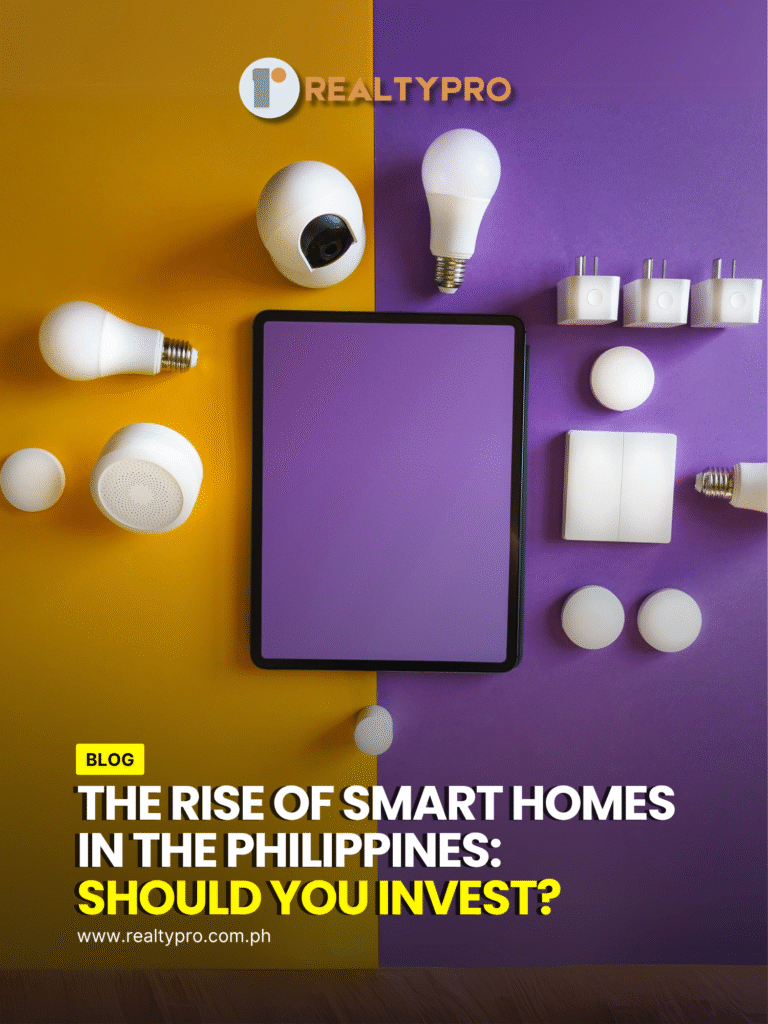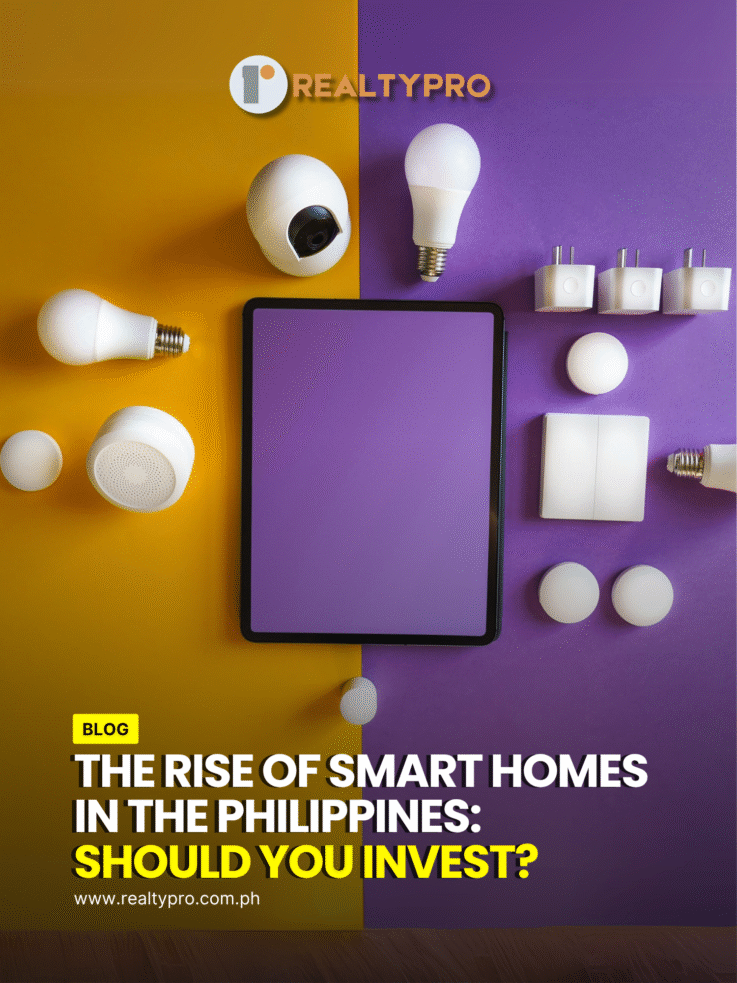The Rise of Smart Homes in the Philippines: Should You Invest?
The Philippine real estate landscape is evolving — and at the forefront of this transformation is the rise of smart homes. No longer just a futuristic concept from sci-fi movies, smart homes are now becoming a reality for Filipino households, offering convenience, security, and energy efficiency all at the tap of a screen or voice command.
But what exactly is a smart home, and should you consider investing in one?
What is a Smart Home?
A smart home uses internet-connected devices to enable remote management and automation of appliances and systems — like lighting, air conditioning, security cameras, entertainment systems, and even kitchen appliances. These devices can be controlled through smartphones, tablets, or smart speakers like Google Home or Alexa.
Imagine arriving home from work and your living room lights automatically turn on, the air conditioning adjusts to your preferred temperature, and your favorite playlist starts playing in the background. That’s the kind of convenience smart home technology brings.
The Smart Home Trend in the Philippines
While the concept of smart homes started in more developed countries, the Philippines is quickly catching up. Local developers are now integrating smart technology into new residential projects, particularly in Metro Manila, Cebu, and Davao.
Here are a few reasons behind the growing popularity:
1. Increased Demand for Convenience and Control
Filipinos today, especially the younger, tech-savvy generation, are leaning towards a more connected lifestyle. With many of us juggling work, family, and social commitments, having a home that “thinks” for you is a game-changer.
2. Improved Security
With smart cameras, motion sensors, door locks, and alarm systems, homeowners can monitor their properties even while away. Real-time alerts sent to your phone give added peace of mind — a feature many Filipinos value, especially in urban areas.
3. Energy Efficiency and Cost Savings
Smart thermostats, lighting systems, and appliances help reduce electricity consumption. These systems learn your habits and adjust usage accordingly, which can significantly cut down your monthly energy bills — something very attractive given our rising power costs.
4. Real Estate Appreciation
Properties with built-in smart features are likely to fetch higher prices in the resale market. For real estate investors, this could mean a higher return on investment. In a competitive market, smart homes offer an edge that traditional properties might lack.
Should You Invest in a Smart Home?
Investing in a smart home depends on your lifestyle, budget, and long-term goals. If you’re buying a new property, choosing one with smart-ready infrastructure could future-proof your investment. You don’t need to go all-in at once; many homeowners start small — with smart lighting or a smart lock — and expand from there.
For landlords or property investors, integrating smart features into rental units can also attract tenants who value technology, security, and convenience. This makes your property more marketable, especially to younger professionals or expats.
However, it’s also important to consider internet reliability in your area, as smart homes rely heavily on stable connections. Also, check for product compatibility and security — not all smart devices work well together, and weak cybersecurity settings can make your system vulnerable.
Final Thoughts: Isang Matalinong Desisyon Ba Ito?
In a world that’s rapidly embracing digital living, investing in a smart home can be a wise move — both for comfort and future value. Hindi lang ito para sa mga techies. Smart living is becoming mainstream, and it’s designed to make everyday Filipino life easier, safer, and more efficient.
Kung kaya sa budget at swak sa lifestyle mo, bakit hindi? Smart home na, smart investment pa. 😉
Read the latest blog – What Is a Condominium Certificate of Title and Why It Matters?



One Comment